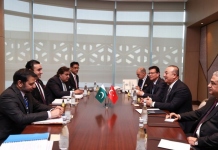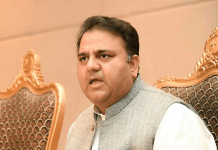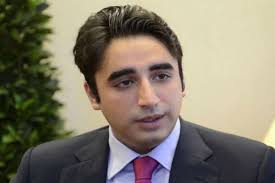Prime Minister Imran Khan Monday emphasized the need to adopt decisions on
ways to mobilize the money needed by develo
ping countries to recover from the Covid-induced recession and restore them on the path to achieving the Sustainable Development Goals by 2030.
In his opening statement at the special virtual segment
of the United Nations’ Economic and Social Council on Financing for Development, Imran Khan said last April he had proposed a global initiative on debt relief. “I am glad to say that the G-20’s debt suspension has been extended. Its scope needs to be enlarged to encompass all vulnerable countries, especially the small island developing states. Private creditors must participate in pr
oviding debt relief and restructuring.”
In January of this year at the UNCTAD meeting, he said, he proposed a five-point agenda for emergency financial support to develo
ping countries, including the debt relief and restructuring, special drawing rights creation and redistribution, larger concessional finance and an end to illicit financial flows from develo
ping countries. “I warmly welcome the proposal from the International Monetary Fund managi
ng director to create 650 billion dollars in new SDRs, and appreciate the support for this from the largest shareholders, including the United States, China, the EU (European Union) and Japan.”
The prime minister viewed that the develo
ping countries should also be able to borrow from the markets at the prevailing low interest rates, which were available to the developed countries. The liquidity and sustainability facility, proposed by the Economic Commission for Africa, could be one
of the ways to achieve it.
He noted that the Panel on Financial Accountability, Transparency and Integrity – the FACTI Panel – had proposed 14 recommendations to halt the outflow of trillions of dollars from the develo
ping countries. “These recommendations should be endorsed by the United Nations and all financial institutions. The stolen assets of develo
ping countries must be returned immediately and more importantly unconditionally.”
He recalled that while speaking to the FACTI Panel, he proposed the imposition of a global minimum corporate tax to avoid profit-shifting and tax avoidance by large corporations. “I endorse the recent US proposal for such a global minimum corporate tax.”
He suggested that a moratorium should be declared on the exorbitant claims adjudicated against some develo
ping countries in investment disputes. Unequal and exploitative investment agreements should be cancelled and revised, he added. He said the international community must ensure that the coronavirus vaccine is available to everyone, everywhere and as soon as possible, and if it were not done, the virus would roam around and come back. “Pakistan contained the first two waves
of the virus through a policy of smart lockdowns. We implemented an eight-billion-dollar relief package to support the poor and vulnerable, and to keep our economy afloat at the same time.” Now, he said, “unfortunately we are facing the third wave
of the virus. We hope to defeat this wave as well. We need a lot of luck, as everyone does.”
The prime minister stressed that the production
of the vaccine must be ramped up, and the patent and technology-transfer restrictions should be waived to enable it. “Vaccine nationalism and export restrictions are deplorable; as is the use
of the vaccine to advance national foreign policy objectives.”













